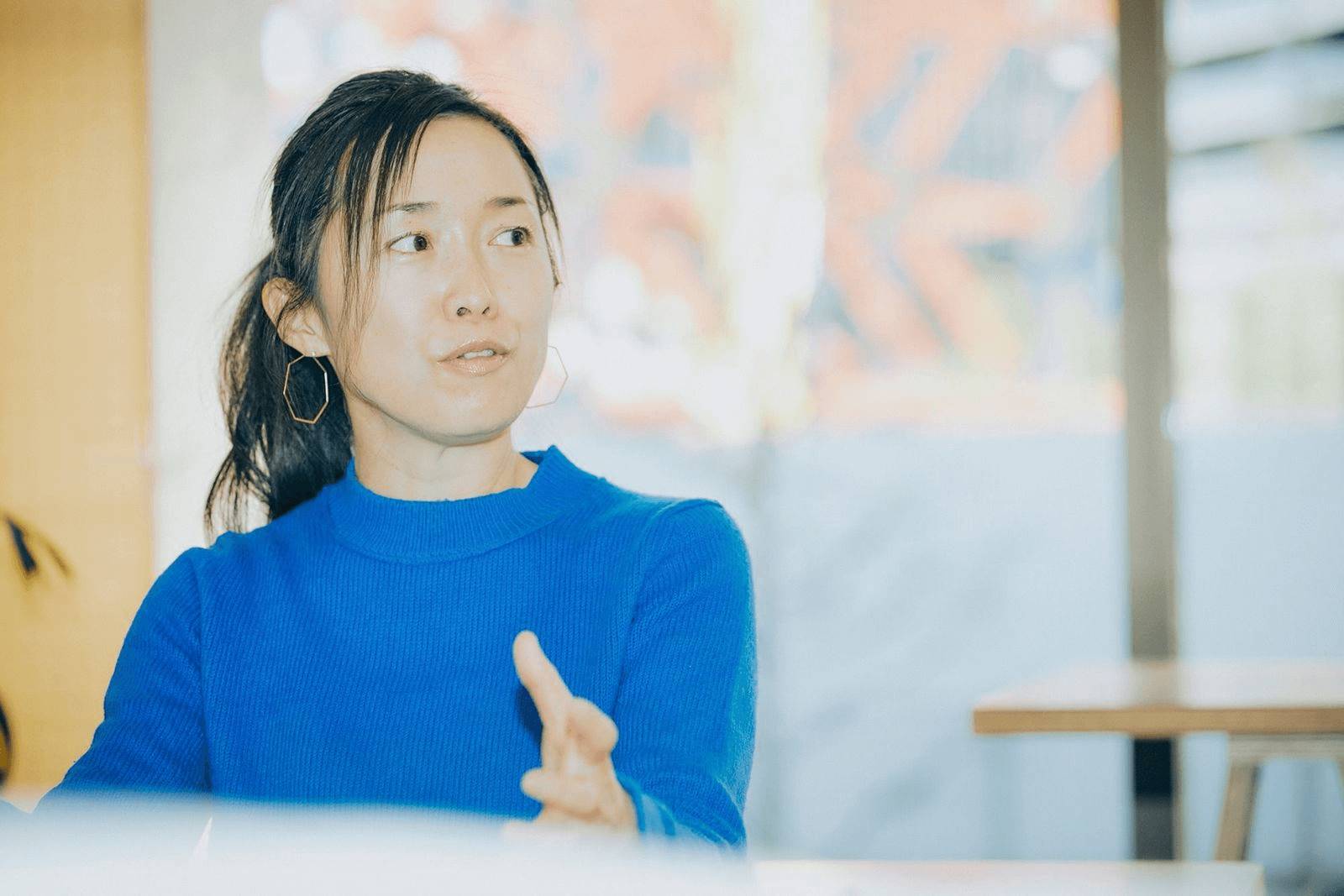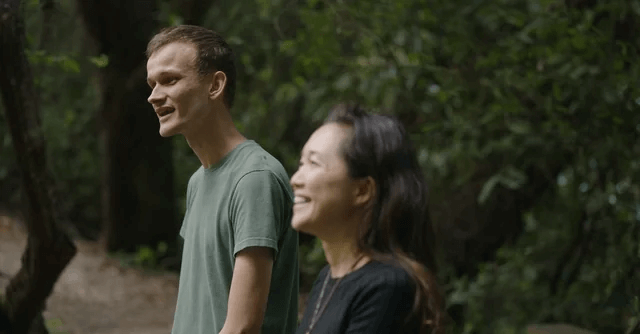Aya Miyaguchi, with over a decade of experience in both education and the cryptocurrency industry, has carved out a unique path, and her story is anything but conventional.
Written by: Zen, PANews
Since the beginning of this year, Aya Miyaguchi, the Executive Director of the Ethereum Foundation, has become the focal point of community discussions. Some opponents have called for a change in leadership at the foundation, and there have even been malicious threats against her online. On the other hand, her supporters argue that since taking office in 2018, Miyaguchi has consistently promoted the decentralization and long-term development of the foundation.
Regardless of criticism or praise, it is undeniable that Aya Miyaguchi, with over a decade of experience in both education and the cryptocurrency industry, has taken a unique path. Her story is unconventional: from a high school teacher in Japan to entering the cryptocurrency industry; from an educator in the classroom to an evangelist in the crypto space, and eventually becoming the leader of the Ethereum Foundation. She continuously crosses fields and transforms her identity.
From "Passionate Teacher" to Cryptocurrency Industry "Pioneer"
Aya Miyaguchi was once a high school teacher in Japan, known for her passion for teaching and nurturing students, earning her the title of "Passionate Teacher." She particularly enjoyed designing creative teaching methods and stories for her students, inspiring them to think independently, critique, and explore.
"Like many other young teachers, I felt uneasy about entering the teaching profession right after graduating from university." After over a decade in the education sector, Miyaguchi grew tired of only teaching textbook knowledge; she wanted to guide students on how to think and learn independently as "whole individuals."
As a teacher, Miyaguchi often encouraged her students to have at least one experience of going abroad in their lives. She also realized that as a teacher, she needed to see the outside world and try other career experiences. Miyaguchi subsequently resigned from her job and went to the United States to pursue a Master's in Business Administration. It was during this time that her life began to intersect with blockchain and cryptocurrency.

Image source: WIRED.jp
Miyaguchi started engaging with Bitcoin in 2011. As someone without a technical background, it took her a long time to truly understand the concept of Bitcoin. After delving into Bitcoin's main advantages, Miyaguchi believed it had enormous potential for financial inclusion and social impact. While pursuing her MBA, Miyaguchi focused her research on sustainable business and personally enjoyed studying microfinance, particularly how to empower women in developing countries to achieve economic independence. Miyaguchi increasingly believed that Bitcoin could play a significant role in this regard.
Jesse Powell, the founder of Kraken, one of the oldest cryptocurrency exchanges, was the first "noble person" to formally bring Miyaguchi into the industry. Through their conversations, the potential of emerging technologies opened her eyes, especially the possibilities of blockchain for financial inclusion, socio-economic inequality, and human coordination. In 2013, Miyaguchi joined Kraken, which had just begun hiring and had very few team members. Initially, Miyaguchi was responsible for Kraken's operations in Japan and later became the Managing Director of Kraken Japan.
In 2014, just as Miyaguchi and Kraken were starting their operations in Japan, the leading exchange Mt. Gox collapsed. The scandal quickly became public knowledge, and Bitcoin and Mt. Gox entered the public eye due to various negative reports, leading to a first impression of Bitcoin in Japan filled with panic and distrust.
As a result, Miyaguchi had to take action. She proactively contacted the government department responsible for researching Bitcoin and related regulatory matters, introduced her background, and explained her relevant experience in the field. She also collaborated with the self-regulatory organization "Digital Asset Transfer Authority" (DATA) to persuade the Japanese government not to regulate the cryptocurrency industry at that time, and these meetings became the starting point for regulatory discussions. Miyaguchi co-founded the Japan Authority of Digital Assets (JADA) and participated in regulatory discussions multiple times, ultimately contributing to Japan's launch of a cryptocurrency regulatory framework in 2017.
Joining Ethereum: Coordinating Community, Projects, and Fund Management
In February 2018, Miyaguchi's career took another significant turn when she accepted an invitation from Ethereum founder Vitalik Buterin to officially join the Ethereum Foundation as Executive Director. Founded in 2015, the Ethereum Foundation is an organization aimed at promoting research, development, and application of Ethereum, while also supporting community activities to advance Ethereum's development. Miyaguchi is primarily responsible for coordinating and organizing various activities of the foundation, including internal affairs and collaboration with community members, such as conducting education and hosting events.
In fact, Miyaguchi and Vitalik had already met back in 2013. After starting her work at Kraken, Miyaguchi encountered the then 19-year-old Vitalik, who was writing articles for Bitcoin Magazine and busy promoting the Ethereum white paper. For Miyaguchi, this encounter was a pivotal moment, and she later realized that Ethereum's potential far exceeded her imagination.
Ethereum could not only facilitate Bitcoin-like financial transactions but, more importantly, it could bring revolutionary changes to non-financial fields. Through smart contracts and decentralized applications (DApps), Ethereum could support new governance models, environmental solutions, and educational systems. These ideas deeply resonated with Miyaguchi, and she believed that if Ethereum could realize the visions outlined in the white paper, it would change the world. Thus, when Vitalik extended the olive branch, Miyaguchi quickly agreed and decided to immerse herself in Ethereum, becoming a core team member.

Image source: WIRED.jp
The open-source nature of Ethereum means that more and more contributors come from the community, and the rapid increase of external contributors makes coordinating internal and external work increasingly challenging. As the largest blockchain ecosystem, the Ethereum community is vast, encompassing anyone doing anything on Ethereum, including individuals, organizations, businesses, and the Ethereum Enterprise Alliance (EEA).
When Miyaguchi joined, the foundation was in a relatively difficult phase. Upon entering the foundation, Miyaguchi faced significant challenges. The work of the Ethereum Foundation involved not only technical research and development but also coordinating the community, promoting project funding, and managing finances. Miyaguchi's goal was to communicate as much as possible with different groups to ensure that Ethereum's development was the result of multi-party collaboration. She once stated, "Our role is more like that of a coordinator rather than a manager. Our goal is to promote the overall development of Ethereum, not to monopolize the work."
Ethereum and the "Infinite Garden"
Perhaps unable to let go of her feelings as a teacher, Miyaguchi, who once played the role of a "gardener" on campus, likes to compare Ethereum to an "infinite garden," a metaphor derived from James P. Carse's book "Finite and Infinite Games." In her view, Ethereum is not just a technical project but a form of "infinite game." In a "finite game," players aim to win the game; in an "infinite game," players aim to keep playing and continuously drive progress. In her heart, "The mission of Ethereum is not to quickly gain short-term profits but to promote the popularization and development of decentralization in the long run."
The metaphor of a "garden" also carries deeper meaning. In Miyaguchi's view, the Ethereum community is like a national park, rather than a meticulously manicured garden. It is filled with diversity and vitality; although there may sometimes be radical voices or strange ideas, these can also become sources of new creativity. Just like the ecosystems in nature, the decentralized Ethereum ecosystem also needs to maintain this diversity and inclusivity.
Throughout Ethereum's development, Miyaguchi has consistently emphasized that decentralization is not just a technical challenge but a transformation of mindset. She believes that the value of decentralization is not only reflected in the financial sector but also encompasses all aspects of society. Many people have yet to realize that the privacy risks, data monopolies, and power abuses brought about by centralization have permeated our lives. The decentralized thinking advocated by Ethereum allows us to fundamentally re-examine social structures and change our relationships with others and with technology.
The Decentralization Dilemma of the Ethereum Foundation
In an early interview, Miyaguchi stated that questions about how the foundation operates and what its functions should be should be discussed internally. However, regarding how technology should be used or how governance should operate, these should not be decided by the foundation or Vitalik. "As an individual who has made significant contributions to Ethereum, he has his own views. But as I said, this should not be decided by anyone in the foundation. Foundation members can certainly have their own opinions and lean towards a certain choice, but when it comes to governance decisions, the final decision should not be made by the foundation."
However, as a decentralized project, the lack of transparency and community involvement in major decisions such as personnel appointments within the foundation has long been a criticized issue. Miyaguchi's predecessor, Executive Director Ming Chan, faced significant criticism within the Ethereum community for being overly controlling and opaque, failing to effectively establish an organizational structure. Miyaguchi, on the other hand, was directly appointed through internal invitations, after being "interviewed" by Vitalik and researchers and developers within the team.

Miyaguchi has also responded to the doubts regarding this hiring process, stating that the foundation can certainly adopt a public approach and let the community decide. "If community members believe this is the best way and make such a suggestion, that is also acceptable." However, she noted that this process involves not only the community but also the internal organizational management of the foundation. They need a candidate with global work experience and long-term experience in the crypto field, and I was told they believe I meet these criteria. "So while this process is not public, I think letting the community decide is also a good idea."
Recently, in an unofficial on-chain vote involving Ethereum community members, former core researcher of the Ethereum Foundation, Danny Ryan, received 99.98% absolute support and was elected as the next head of the foundation. Consensys CEO and Ethereum co-founder Joseph Lubin also suggested that Danny Ryan and Jerome de Tychey, president of ETH France, co-lead the Ethereum Foundation to enhance its technical orientation and vitality.
Danny Ryan was a core researcher at the Ethereum Foundation and played a significant role in key upgrades such as Proof of Stake (PoS) and The Merge. At the beginning of this year, when Miyaguchi was in the spotlight, Ryan also stepped forward to call for an end to the "mob-like criticism" against her. Ryan stated that regardless of any role he plays in Ethereum's future, he has great respect for and recognizes Miyaguchi's leadership abilities, describing her as having profound strategic vision and pure intentions. "There are many reasons why Ethereum has thrived over the years, and Aya has played an important role in that. My success in Ethereum has always been tied to her support and guidance," Ryan expressed in a tweet.
Vitalik Buterin also defended Aya Miyaguchi against the accusations, pointing out that there were translation discrepancies in the relevant quotes and criticizing some of the violent attacks against her as "pure malice." Vitalik also made it clear in a tweet that the decision-making power of the current Ethereum Foundation's new leadership team rests with him, and the ongoing reforms aim to introduce a formal board of directors for the foundation, but until then, the decision-making power still belongs to him personally.
免责声明:本文章仅代表作者个人观点,不代表本平台的立场和观点。本文章仅供信息分享,不构成对任何人的任何投资建议。用户与作者之间的任何争议,与本平台无关。如网页中刊载的文章或图片涉及侵权,请提供相关的权利证明和身份证明发送邮件到support@aicoin.com,本平台相关工作人员将会进行核查。




